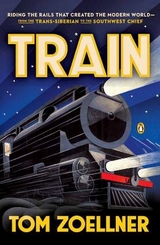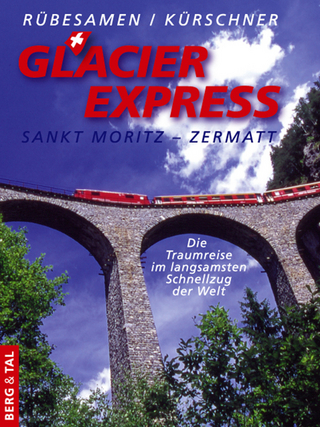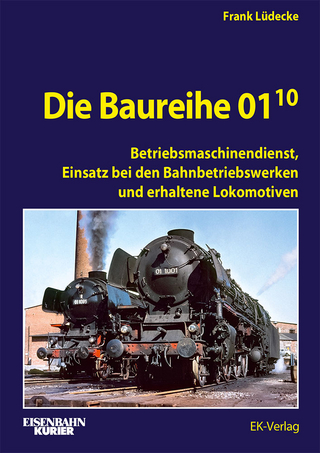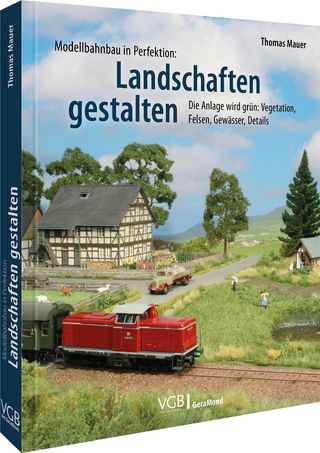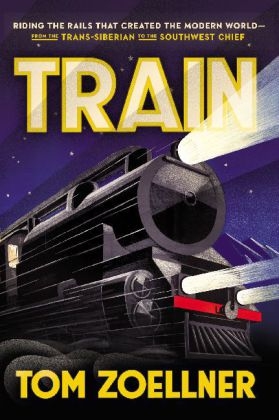
Train
Penguin Putnam (Verlag)
978-0-670-01717-1 (ISBN)
- Titel erscheint in neuer Auflage
- Artikel merken
A revelatory, entertaining account of the world's most indispensable mode of transportation
Tom Zoellner loves trains with a ferocious passion. In his new book he chronicles the innovation and sociological impact of the railway technology that changed the world, and could very well change it again.
From the frigid trans-Siberian railroad to the antiquated Indian Railways to the futuristic MagLev trains, Zoellner offers a stirring story of man's relationship with trains. Zoellner examines both the mechanics of the rails and their engines and how they helped societies evolve. Not only do trains transport people and goods in an efficient manner, but they also reduce pollution and dependency upon oil. Zoellner also considers America's culture of ambivalence to mass transit, using the perpetually stalled line between Los Angeles and San Francisco as a case study in bureaucracy and public indifference.
Train presents both an entertaining history of railway travel around the world while offering a serious and impassioned case for the future of train travel.
TOM ZOELLNER is the author of five nonfiction books including Uranium, winner of the 2011 American Institute of Physics Science Writing Award. He was the coauthor with Paul Rusesabagina of the New York Times bestseller An Ordinary Man . He has worked as a reporter for the San Francisco Chronicle and The Arizona Republic and as a contributing editor for Men's Health magazine. He teaches at Chapman University and lives in Los Angeles.
Praise for Train:
"Tom Zoellner's writing is never less than engaging; in Train he has made himself a veritable Walt Whitman of rail travel. It's a great read."-Richard Rhodes, Pulitzer prize-winning author of The Making of the Atomic Bomb "Train is such a pleasure to read, elegant, deeply informed and smart, full of knowledge-bearing sentences, and prose so companionable and rich in insight that it is as if its author were at your shoulder, taking you along with him. What an enjoyable journey. I will never hear the far off moan of a train in the night without thinking of it, and I know of no higher praise one can give a book. Tom Zoellner is quickly making himself a reputation as a man of wide and eclectic interests, and oh, my! Can he write!"-Richard Bausch, author of Peace
"Spirited and bighearted...Zoellner enlightens us about an industry that's hiding in plain sight."- San Francisco Chronicle
"Highly entertaining, lucid and perceptive....It's a train lover's celebration of the great epic story of rail travel itself."- Los Angeles Times
"This is one of those all-too-rare books that have so much to them"- The Washington Times
"[ Train ] is a gracefully written, densely detailed meditation of trains-past, present and future....[P]art travelogue, as he rides seven train that shaped the modern world; part personal memoir, as he describes the people he met along the way; and part history of trains, from their origin to their impact on societies around the world and their vital role in the fast-forward 21st century."- LA Weekly
"An absorbing and lively reflection on an enduring marvel of modern industrial technology."- Booklist
" Train makes for fascinating reading....The author's easy, breezy style will keep readers chugging along."- The St. Louis Post-Dispatch
"Zoellner illustrates how the modern era was ushered in and strapped in place by railroads, and how trains-the reality and the idea-continue to shape the world as we understand it.... Train is by turns lyrical, powerful, romantic, transporting, and rich."- Phoenix New Times
"[Train], rich with history and local color, is a mesmerizing read for anyone interested in the impact of trains on the environment, politics, economics, and daily life around the world today."- Library Journal
"Enchanting and informative."- New York Post
"[ Train ] is an absorbing round-the-world journey."- BookPage
PENGUIN BOOKS TRAIN INTRODUCTION Twenty years after I saw her, I still remember the young woman across the aisle from me on a train through a snowstorm in Pennsylvania. She was half visible in the overhead lamp, wearing a college sweatshirt and holding an open book on her lap. Whatever she was reading was making her cry softly. I couldn't see the title and I was too shy to ask, but the sight of her wiping away tears-emotionally transported into one world as she was physically transported in another-made me feel my individuality dissolving. Snowflakes struck the dark windows without a sound, but unseen wheels hummed, and outside realities could be subsumed for a while in this linear realm of motion and warmth, five hours from Pittsburgh and nowhere in particular. We were standing perfectly still, yet moving over parallel lines of steel, and she seemed like a ghost in the dim light. I can't ride on a train at night without remembering her, wishing I had talked to her, strangely grateful that she remained a cipher. Railroads anywhere, but especially in America, have the power to invoke odd spells like this, a feeling that might be called Train Sublime: the tidal sway of the carriages, the chanting of the wheels striking the fishplates (to me it sounds like dear-boy, dear-boy, dear-boy) , the glancing presence of strangers on their own journeys and wrapped in private ruminations. These secret pleasures of a railroad summon forth a vision of a sweet pastness, a lost national togetherness. The train is a time traveler itself, the lost American vehicle of our ancestors, or perhaps our past selves. We live in a society that was made by the railroads in ways we never think about anymore: our imported food, the beat of our music, our huge corporations and their methods of stock financing, our strong labor unions, our abstract notion of time and our sense of everyday connection with people who may live far out of sight but are made neighbors through mechanical means. Under the skin of modernity lies a skeleton of railroad tracks. But in the light of the modern world, trains are not nostalgic playthings-not by any measurement. They serve unromantic needs and hard economies. On an average weekday morning, approximately 100 million people across the world are boarding trains: from Paddington station in London, from the magnificent Victoria Terminus in Mumbai, from the tawdry and run-down Tirana Railway Station in Albania, the Baltazar Fidelis platform on the Jundial line outside São Paulo, the flying saucer of Beijing's sparkling new South Station, tiny one-room depots or lonely platforms scattered in the countryside all over Argentina, Belgium, South Africa and Japan and eighty-six other nations, to say nothing of the 13 trillion tons per kilometer of cargo they haul each year. Global commerce would instantaneously crash without them. And passenger trains are still alive and breathing even in America, though we have sacrificed most of them in favor of the long-haul plane ride and interstate car travel. A quasi-federal agency called Amtrak has kept overland trains in a state of reliable mediocrity since 1971, and it was on the creaky old Pennsylvanian when I first spotted the woman in the snowstorm. At least two dozen major cities have working commuter rail tentacles out to their suburbs-about 3 percent of Americans use them to get to work, mainly in the Northeast. I am one of those 100 million who ride the train as a matter of routine. And I do it from the famously car-happy city of Los Angeles. My trip to my workplace takes a reliable forty-seven minutes, and I don't do it as an act of rebellion against the oil companies or as an ideological protest against my car. I do it because it is relatively cheap and it saves me from the freeway. And while I usually tote a book, I more often stare out the window at one of the truly anci
| Sprache | englisch |
|---|---|
| Gewicht | 450 g |
| Themenwelt | Literatur |
| Natur / Technik ► Fahrzeuge / Flugzeuge / Schiffe ► Schienenfahrzeuge | |
| Schlagworte | Eisenbahn |
| ISBN-10 | 0-670-01717-5 / 0670017175 |
| ISBN-13 | 978-0-670-01717-1 / 9780670017171 |
| Zustand | Neuware |
| Haben Sie eine Frage zum Produkt? |
aus dem Bereich
